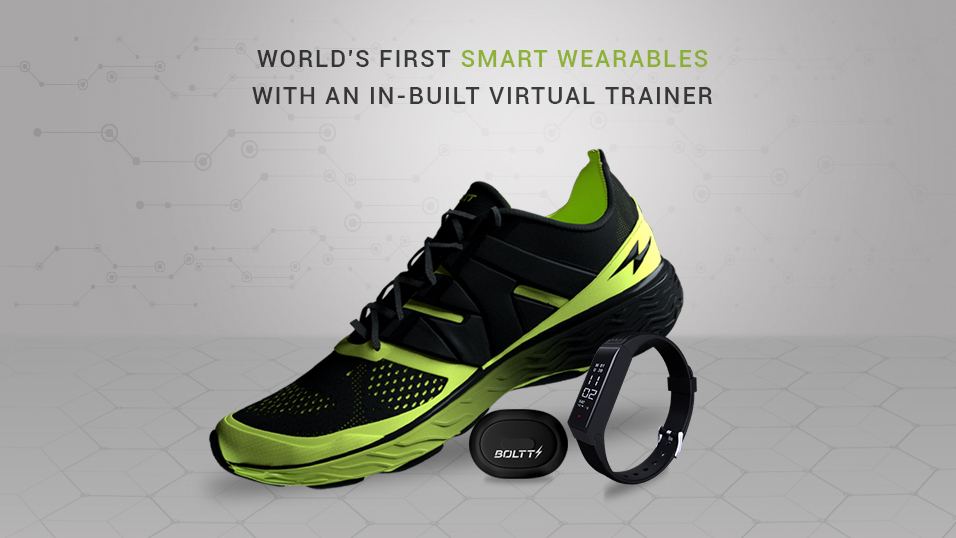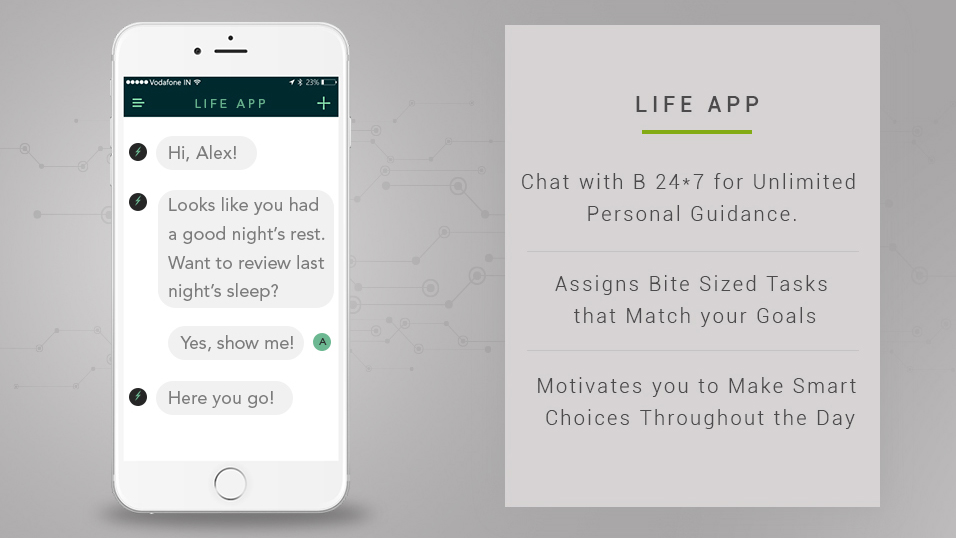Boltt claims to be the fitness tracker to defeat them all
Lofty goals at a low, low price

Sign up for breaking news, reviews, opinion, top tech deals, and more.
You are now subscribed
Your newsletter sign-up was successful
Indian startup Boltt is claiming to have a fitness tracking system so complete that it'll force you to ditch your Fitbit, Jawbone or Moov system - all through the power of artificial intelligence (AI).
The new company is offering a smart show, stride sensor and fitness band that it says will give 24-hour insights into your health and activity - and doing so all for $150 (around £120 / AU$200).
Yes, you read that right: a pair of 'high performance functional sports shoes', and embedded stride sensor packed with the latest accelerometers and a fitness band that can monitor sleep, automatically detect activity and monitor your heart rate.
All for $150 as an early bird buyer on Kickstarter, or $236 (£200 / AU$325) at full price.
It's a lofty goal, but the brand has worked with Garmin to improve the stride-tracking accuracy and even offers payment systems through embedded payment technology (essentially, NFC in the band).
How can I help you?
We've seen all that before, but the really exciting prospect here is 'B', Boltt's AI chat-bot system that will interact with you daily as a 24-7 coach to give insights into nutrition, sleep and training.
Through the app, you'll be able to talk to B, log food from a million different types and take part in 200 different, guided fitness sessions that can give you real time feedback.
Sign up for breaking news, reviews, opinion, top tech deals, and more.

That feedback element is the most exciting thing here, as Boltt is claiming that its system is capable of monitoring your form during a run, and give you updates on how to improve your posture and effort.
In short, it would be the virtual personal trainer most fitness enthusiasts, tired of paying huge amounts to a coach, have been waiting for.
Questions remain
However, there are a lot of elements to be answered here, and that starts with the price: how can all this advanced technology be integrated into one package this affordably?
It seems that the AI alone would be worth that money - but it's hard to confirm how useful and intuitive the training would be without trying the app out specifically.
The shoes also raise eyebrows: if they're truly going to be part of a must-have connected system, they need to be high quality construction as well as technologically smart, and it's hard to see how a start-up brand can do that on a budget.
The sensors also offer '97% accuracy' in the shoe, which also seems a little low for something that you want to get everything right for your health. That accuracy is likely to do with the fact the stride sensor relies on accelerometer data rather than GPS to give you pace and distance.
There's no GPS in the band either, nor does it seem to track activity beyond running, walking and 'leisure', so at the very least cyclists would be aggravated.
And while the brand is a startup, the website and promotional materials lack polish, which makes it a slightly tougher sell to a fitness enthusiast that's usually seduced by glossy production and messaging.
But - that doesn't mean that Boltt won't live up to its promises. The engineers have been working hard on such a project and with AI getting smarter all the time and sensor prices dropping rapidly, this could yet prove to be the virtual training platform of our dreams.
- Gareth Beavis is TechRadar's Running Man of Tech, testing the latest in fitness technology in a never-ending quest to run further and faster and bringing you the results in a weekly column.
- If you want to say hi, he's @superbeav on Twitter
- You can see his stumblings on Strava
- And for more data, follow him on Smashrun
- And if you want to get the full lowdown on the latest and greatest running tech, read the rest of the Running Man of Tech story here

Gareth has been part of the consumer technology world in a career spanning three decades. He started life as a staff writer on the fledgling TechRadar, and has grew with the site (primarily as phones, tablets and wearables editor) until becoming Global Editor in Chief in 2018. Gareth has written over 4,000 articles for TechRadar, has contributed expert insight to a number of other publications, chaired panels on zeitgeist technologies, presented at the Gadget Show Live as well as representing the brand on TV and radio for multiple channels including Sky, BBC, ITV and Al-Jazeera. Passionate about fitness, he can bore anyone rigid about stress management, sleep tracking, heart rate variance as well as bemoaning something about the latest iPhone, Galaxy or OLED TV.